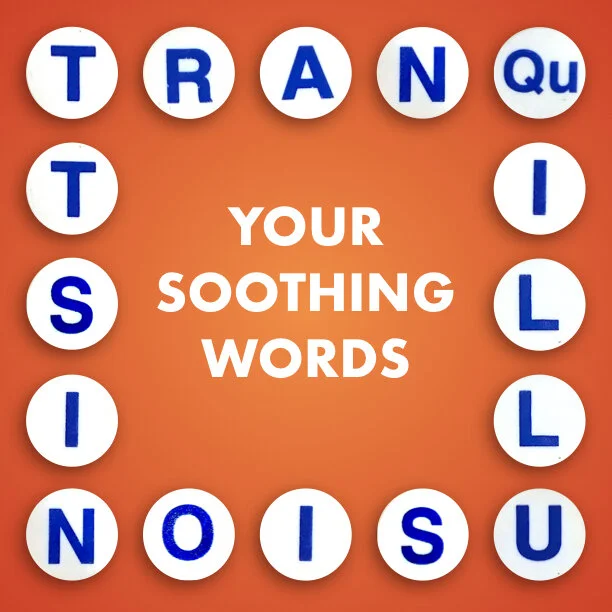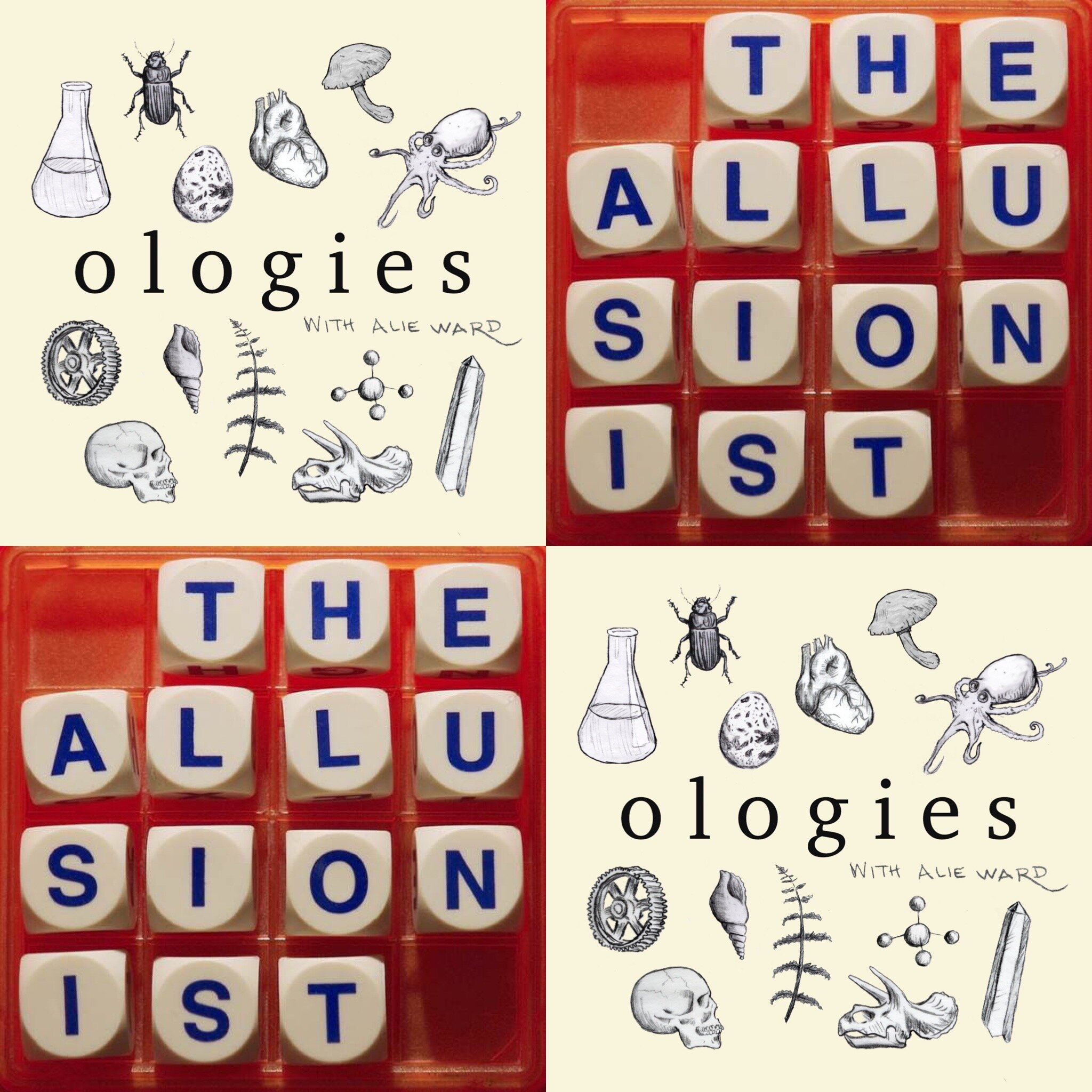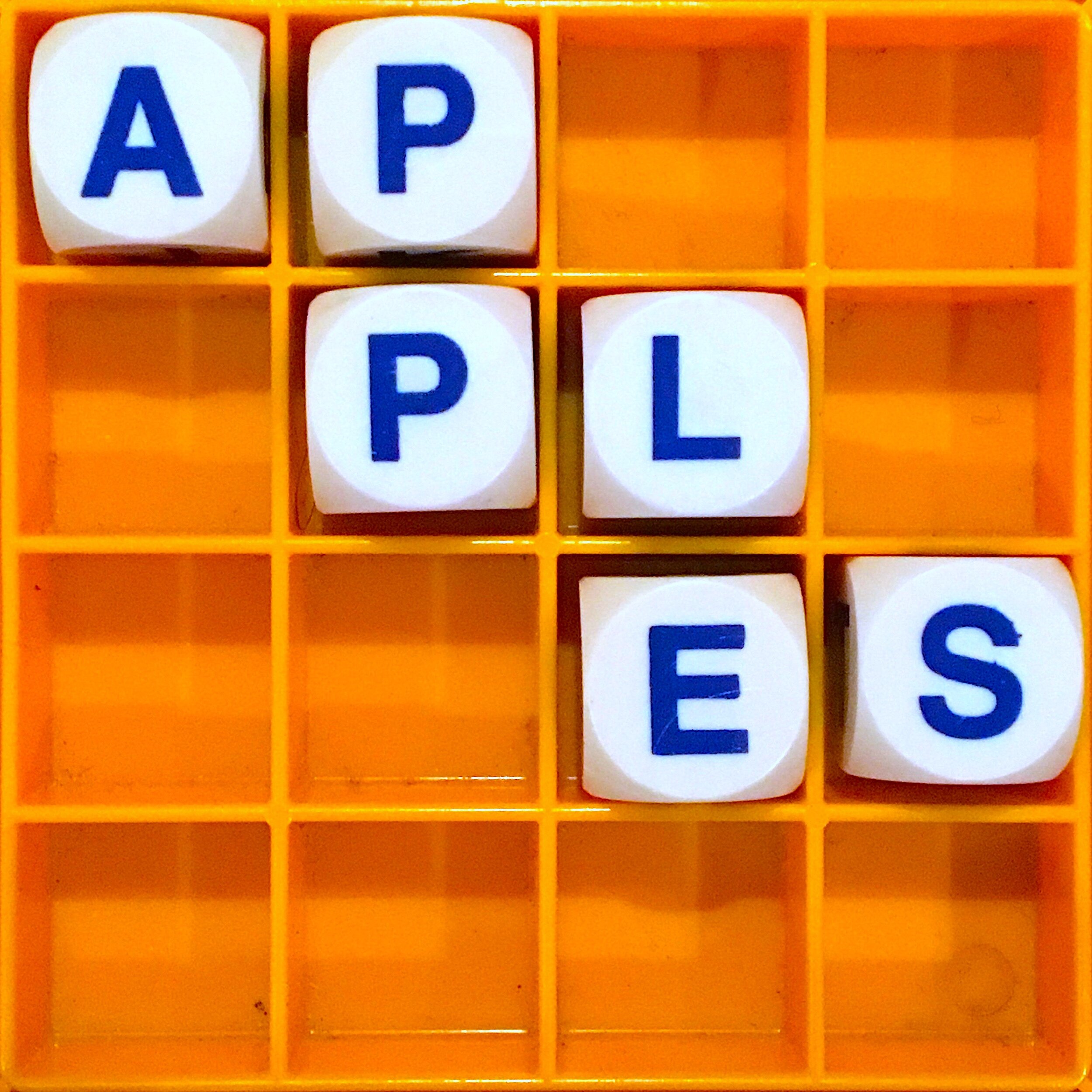This is the Tranquillusionist, in which I, Helen Zaltzman, for the purposes of quelling anxiety and stress and sleeplessness, read the lyrics to ‘Imagine’ by John Lennon, with the words arranged in reverse alphabetical order.
Read moreTranquillusionist: Your Soothing Words transcript
This is the Allusionist, in which I, Helen Zaltzman, read out the words that you've told me you find the most soothing.
Read moreAllusionist 114. Alarm Bells transcript
ROBIN WEBSTER: I am as guilty as any, having worked as a sort of techie professional in this for a long time of writing those sentences that go "By 2050, the trajectory of the curve will be movement this and carbon capture and storage," these paragraphs that just mean nothing to nobody. And they are about things which are far away in time, far away in place. We were using these words like ‘sustainability’ and ‘trajectory’ and ‘parts per million’. And I was like, what on earth is this language? It doesn't say anything.
HZ: ‘Parts per million’: that's the stuff to get people up and ready for action.
ROBIN WEBSTER: 450 parts per million, let's go!
Allusionist 113. Zaltzology transcript
ALIE WARD: Carrie Studard wants to know: “Are there any synonyms for the most hated word, ‘moist’?”
HZ: Moist. Do you hate the word ‘moist’?
ALIE WARD: At this point, it's an underdog. You know what I mean? Like, can moist live? Can it just do its business? I don't hate it.
HZ: It's fine.
ALIE WARD: I don't hate it. I tend to think of dew or grass more than I think of...
HZ: Well, that's a lovely form of moisture. I suppose the people who hate it are maybe thinking of bodily crevices. And that's their prejudice showing.
ALIE WARD: Yes, it is.
HZ: Yeah. Because other words like ‘damp’ - I mean, if you're moist from the rain, like a raincoat. Damp. Is that better? Is that worse? A bodily crevice could also be damp.
ALIE WARD: Sure. I feel like moist has a certain heat to it that damp lacks.
HZ: A steaminess rather than chilliness. It's good that we're figuring these things out.
Read moreAllusionist special: Podcast Podcast transcript
I’m here to talk about a word that a lot of people hate: podcast.
Read moreAllusionist 110. Engraving part 1: Epitaph - transcript
DAVID NADELBERG: There's Ronald. Ronald didn't get any epitaph.
HZ: No. Maybe no one liked him.
DAVID NADELBERG: Or, maybe they just couldn't agree.
HZ: Or maybe there's too much to say.
Allusionist 109. East West - transcript
ÉTIENNE ROEDER: There are some words that still exist. There are some expressions you could still tell that these people that the people come from the East or the West. For example, in the Western part, they say ‘Plastik’, and in the Eastern part, I would say they say ‘Plaste’ because there was a company in the East - there was actually just one company in the East that produced plastics and that was called Plaste und Elaste, and because of that, all the people would call plastics ‘Plaste’. And you you could still tell today if someone says ‘Plaste’ and instead of ‘Plastik’ that this person is probably from the Eastern part.
ESTHER-MIRIAM WAGNER: ‘Plastetüte’ - plastic bag. I mean I remember going to school with a plastic bag and being sent home because it was a West German bag. This was a very precious item - you would keep a ‘Plastetüte’ for months and you would reuse it and reuse it and reuse it until it was just tatters. That was a precious object.
MATTHIAS EINHOFF: My son, when he tries to identify if someone is coming from a West German or East German family, he asks them how they call the thing that you put your bathroom things in: East Germans say ‘Waschtasche’ and West Germans say ‘Kulturbeutel’. And that’s the ultimate identifier whether you come from a East or West German family.
Read moreAllusionist 108. Enjoy! - transcript
SARA BROOKE CURTIS: An interesting thing with ‘enjoy’ is that it's become so common, because it’s so normal, so many people do it in all the different restaurants, to such an extent that there are restaurants that you could not say 'enjoy'. That was their biggest pet peeve, was saying ‘enjoy’. And it was massive.
HZ: Why?
SARA BROOKE CURTIS: Because they didn't want their servers to act like robots and they thought that if you said 'enjoy' that people would feel like they're anywhere, and that you're not expressing anything; you're just saying this thing that people say all the time.
HZ: Where does it come from? Is there this cabal like the Pantone colour thing where it's like, "This year everyone will be wearing forest green" - is there that for service vocabulary?
SARA BROOKE CURTIS: Yeah, I think there is. I really do think there is.
Allusionist 107. Apples - transcript
KATHRYN GRANDY: After the name was selected and initially growers and even some people from WSU didn't really like the name Cosmic Crisp.
HZ: Oh, why not?
KATHRYN GRANDY: They said it's like The Jetsons, too futuristic.
HZ: Is that bad?
KATHRYN GRANDY: You know, I love the name; and being futuristic and like The Jetsons I think is pretty cool. But the one thing I've learned being in marketing is everybody is an art director. Somebody wanted to named Cosmic Crisp ‘Sparkle’. And to me, that makes me think of dish soap.
Allusionist 106. Typo Demon - transcript
IAN CHILLAG: Titivillus is the typo demon. I've certainly felt the effects of the demon Titivillus in my life. I've made typos. I had not, until I learned of Titivillus, known that I could blame those typos on a higher power or - is a demon or a lower power?
HZ: I think they originated when an archangel fell from heaven - Lucifer - ao I'd imagine if you're taking the conventional geography of heaven being high, then the demons would be low - but then a typing demon would probably be on the Earth's surface for maximum efficacy.
IAN CHILLAG: Well, Titivillus did - does, maybe - walk the Earth, and what he does is make scribes make errors. So a medieval scribe is doing their work, writing down what they have to in their text, probably a religious text; and Titivillus shows up and does whatever he does and suddenly there are typos in those texts.
HZ: And rather than ascribing that to medieval scribes having very tired hands due to the equipment that they use being exhausting to propel, and they were working in not the brightest light conditions, they were like, "No, it's demons."
IAN CHILLAG: Nope, it was Titivillus the typo demon.
HZ: We're talking about a demon that arrived on the scene of demonism in the 13th century.
IAN CHILLAG: Correct.
HZ: So when we say typos, we really mean handos.
IAN CHILLAG: Yeah yeah. The hando demon.
Read moreAllusionist 105. F'ood - transcript
NANCY FRIEDMAN: The 1920s were kind of a big era for inventive spellings, with V and K: Tasty Kakes with a K, that was the 1920s; Cheez It - C H E E Z I T, 1921 it was. They're cheesy crackers. And. Let's see. There's Cheez Whiz which is a little newer, 1952. These names have been around quite a while.
HZ: And is the idea with things like Cheez Its and Cheez Whiz that it's a cheese-esque product but it isn't technically cheese?
NANCY FRIEDMAN: It's got some dairy, usually some kind of whey product in it; but you're not meant to think that this is - first of all, it's not perishable the way cheese is. So yeah, they do have some family relationship to a cow; but it's not the pure product. We have to remember that there was a time when that was a nifty thing. It was modern and scientific.
HZ: Does anyone go for cheeese, spelled with a triple E, as a variant?
NANCY FRIEDMAN: I haven't seen any brands that are doing that. But now I will look for them.
HZ: You can have that on me.
NANCY FRIEDMAN: Yeah. That would be very internetty, to go for three or four vowels.
Allusionist 104. Words Into Food - transcript
KATE YOUNG: I can travel through what these characters are eating and what they're doing, and travel to places, to countries I've never been, but also to fantastical worlds that I've never been to and versions of this world that feel very different to my own or are 200 years older than this or one hundred years in the future or any of those things
Read moreAllusionist 103. Food Into Words - transcript
FELICITY CLOAKE: It's very nerveracking because people spend money on ingredients, they may be cooking it for a special occasion, they try to impress a date or whatever - there's a lot that can go wrong with food and it's quite a weighty responsibility to be responsible someone's dinner or their birthday cake or whatever; it is a big deal.
RACHEL GREENHAUS: If it's a cookbook for family use, you're going to write it differently than if it's a cookbook for expert bakers and figuring out how to get the recipe that's right for that.
MIMI AYE: It's very different from cooking in real life, I think. Which is weird because you're trying to tell people how to cook the dish.
RACHEL GREENHAUS: It would be really easy to show you, but it's hard to describe in language.
MIMI AYE: Yeah, it's a complete nightmare.
Read moreAllusionist 102. New Rules - transcript
HZ: How are we supposed to learn these rules? Because it's very subtle.
GRETCHEN McCULLOCH: It is very subtle. And I think we learn them from interacting with each other primarily.
HZ: I know that I was never taught through formal channels to emphasise something by repeating letters - omfggggg! - or by putting a full stop or exclamation mark after every 👏 word 👏 in 👏 the 👏 sentence, or by attaching a gif of a panda upending a desk.
GRETCHEN McCULLOCH: We have been doing emphasis in writing for a lot longer than the internet has even been a glimmer in someone's imagination.
Read more













